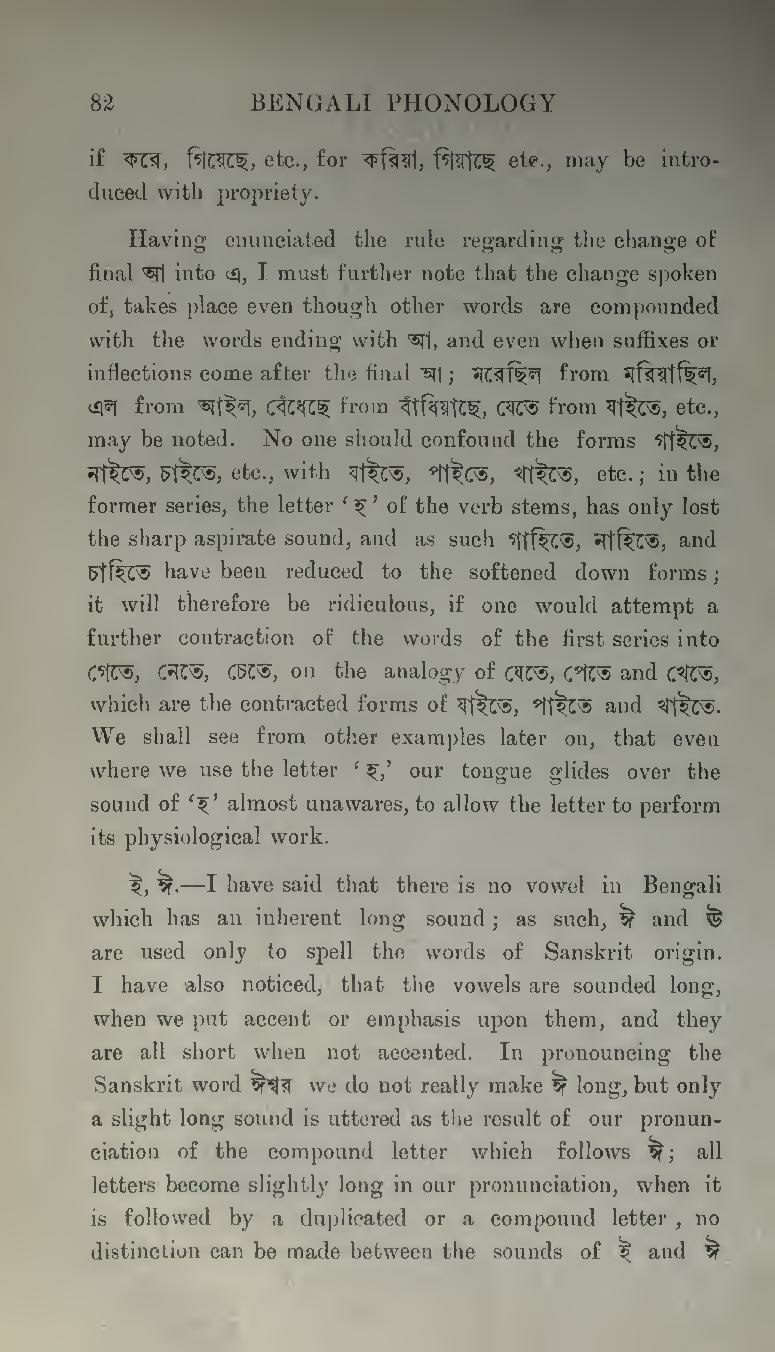if করে, গিয়েছে, etc., for করিয়া, গিয়াছে etc., may be introduced with propriety.
Having enunciated the rule regarding the change of final আ into এ, I must further note that the change spoken of, takes place even though other words ending with আ, and even when suffixes or inflections come after the final আ; মরেছিল from মরিয়াছিল, এল from আইল, বেঁধেছে from বাঁধিয়াছে, যেতে from যাইতে, etc., may be noted. No one should confound the forms গাইতে, নাইতে, চাইতে, etc., with যাইতে, পাইতে, খাইতে, etc.; in the former series, the letter 'হ' of the verb stems, has only lost the sharp aspirate sound, and as such গাহিতে, নাহিতে, and চাহিতে have been reduced to the softened down forms; it will therefore be ridiculous, if one would attempt a further contraction of the words of the first series into গেতে, নেতে, চেতে, on the analogy of যেতে, পেতে and খেতে, which are the contracted forms of যাইতে, পাইতে and খাইতে. We shall see from other examples later on, that even where we use the letter 'হ,' our tongue glides over the sound of 'হ' almost unawares, to allow the letter to perform its physiological work.
ই, ঈ.—I have said that there is no vowel in Bengali which has an inherent long sound; as such, ঈ and ঊ are used only to spell the words of Sanskrit origin. I have also noticed, that the vowels are sounded long, when we put accent or emphasis upon them, and they are all short when not accented. In pronouncing the Sanskrit word ঈশ্বর we do not really make ঈ long, but only a slight long sound is uttered as the result of our pronunciation of the compound letter which follows ঈ; all letters become slightly long in our pronunciation, when it is followed by a duplicated or a compound letter, no distinction can be made between the sounds of ই and ঈ
